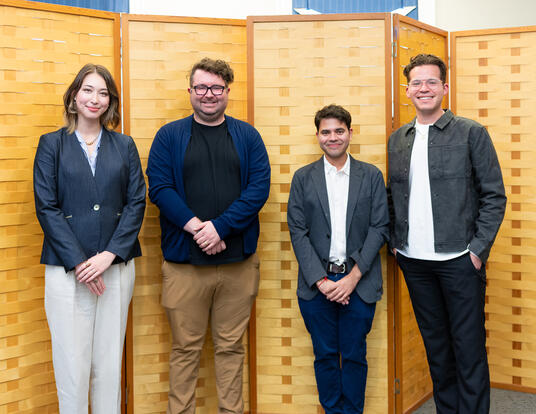Advising Best Practice: Engage Multiple Mentors

When it comes to advising and mentoring, the adage “don’t put all of your eggs in one basket” generally holds true. A primary advisor can—and should—offer support in a range of areas but will not be able to provide all of the answers and advice a graduate student will need over the course of their program. Therefore, in addition to selecting a faculty member to fill this important role of primary advisor, students should also cultivate what amounts to an advising village. Perhaps you continue to check in with a favorite faculty member from coursework, meet with your undergraduate advisor on Zoom once per term, or seek advice from an administrator or other staff member. These interactions do not need to be solely focused on business, either, as sometimes comparing notes on go-to restaurants or discussing the latest Netflix show can provide perspective you didn’t realize you needed. Over time, the complementary roles of those in a mentoring network will become clearer: one person might have their ear to the ground on the job front, another could hold the power to help transform your half-formed thoughts into articulate ideas, and another might give great pep talks or catch every grammar mistake. However you want to conceive of your multiple mentors—as a network, a village, a squad—cultivating and maintaining these relationships will help you grow as a scholar and a person. When it comes to mentors, as the saying goes, “the more the merrier.”
Quick Tips
- Build a Team Together. Consider asking your advisor for help brainstorming important connections at Harvard and beyond. Who could your advisor introduce you to via email or at a conference? They might be able to think of scholars who are new to you but could provide fresh perspective on your research.
- Think Beyond Faculty. Remember that potential mentors are all around you. Take that helpful librarian out for coffee and pick their brain. The office assistant who saved the day with that letter of recommendation deadline might have experience with what you’re going through. Ask your advisor or committee members what mentoring relationships they have benefitted from over the course of their careers, both within and beyond the academy.
- Map it Out. Sometimes you have more people in your corner than you realize, and other times you might not notice you’re missing a key part of your network of mentors. Consider some categories that are important to you as a scholar, teacher, and human being: who provides intellectual community? Detailed feedback? Career guidance? Personal support? Identifying gaps is the first step toward filling them.
Resources
The University of Michigan’s mentoring map (p. 14) provides a framework for reflecting on your network of mentors.
Check out “Why You Need Multiple Mentors” from the Harvard Business Review.
Read opinion pieces on “The Power of Peer Networks” and “Seek Multiple Mentors” in Inside Higher Ed.
Get the Latest Updates
Join Our Newsletter
Subscribe to Colloquy Podcast
Simplecast





